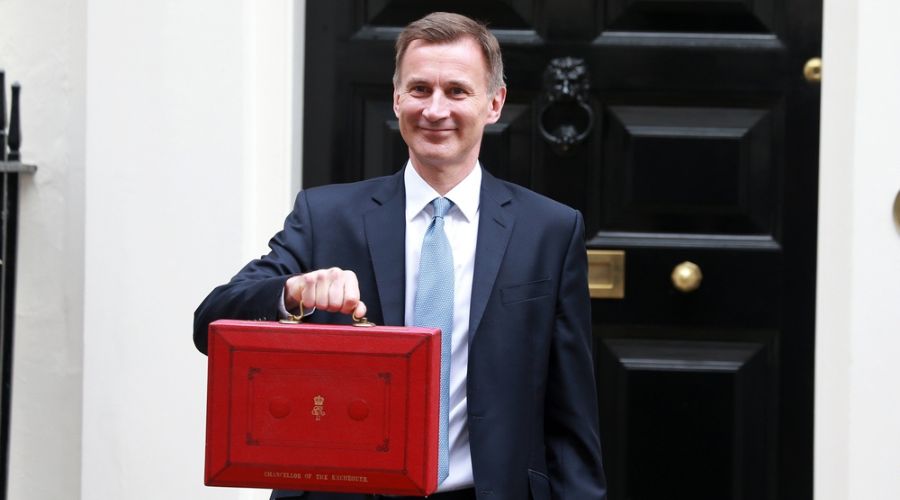What should farmers expect from 2024 spring Budget?
5th March 2024
An NFU Mutual expert has picked six things for farmers to watch out for in Jeremy Hunt’s Budget this week.

The Chancellor is set to deliver the 2024 spring Budget on Wednesday 6th of March.
Sean McCann, chartered financial planner at NFU Mutual, said that certainty over inheritance tax and ELMs will be of key importance for UK farmers. He added: “Farmers will be hoping for overdue clarity around the application of agricultural property relief alongside the government’s Environmental Land Management schemes (ELMs).
“Agricultural Property Relief can reduce or eliminate the inheritance tax liability on agricultural land. A key requirement is that the land is occupied for agriculture. Some of the schemes proposed under ELMs require land to be withdrawn from agricultural production, which could mean theloss of relief and lead to larger inheritance tax bills.
“Confirmation that land used for ELMs still qualify for APR is crucial – otherwise it will discourage farmers from taking part in the government’s schemes if they risk a future tax bill.”
Productivity boost
Mr McCann also pointed out that two years ago, PM Rishi Sunak promised to reduce the basic rate of income tax from 20% to 19%; however, that would be an expensive move for the government keen to balance the books without fueling inflation.
He added: “Another cut to National Insurance contributions is potentially more likely because it is both cheaper for the government and rewards those in employment, so it can be billed as a boost for growth and productivity.
‘’A cut to Income tax would be more expensive as it would apply to saving interest and rental income as well as earnings, making it harder for the Chancellor to present it purely as a measure to boost productivity.
“Employee’s National Insurance was cut from 12% to 10% in January, and shaving another one or two per cent off it this spring could be on the cards.”
READ MORE : Hundreds of farmers joined 2024 Farming Conference to talk about current issues
Easing the burden
The NFU expert is also predicts changes in inheritance tax. He called it “one of the most feared taxes”, adding that making changes in inheritance tax during the election year could be a potential “vote winner”.
What is more, he also spoke about reforming the divisive High Income Child Benefit Tax.
Mr McCann said: “When the High-Income Child Benefit Tax was introduced over a decade ago, the £50,000 threshold was deemed a high income. Eleven years later, wage growth has dragged more and more families into this tax, which is widely misunderstood and viewed by many as inherently unfair.
“The tax is levied on the highest earner in the household, for every £100 of income over £50,000, they must repay 1% of the child benefit received, at £60,000 they must repay the full amount. If claiming for two children, this would amount to £2,075.
“If the £50,000 threshold was uprated with inflation, it would now be £66,728. The Chancellor could ease the burden on squeezed families by finally increasing this long-frozen threshold.”
READ MORE : New NFU president named
Tax-free allowance
Mr McCann also expects tweaks to the Personal Savings Allowance. He said: “One of the by-products of higher interest rates has been increased tax bills for many savers.
“The personal savings allowance of £1,000 for basic rate taxpayers and £500 for higher rate taxpayers has been frozen for eight years, which means more and more people are now paying tax on the interest from their savings.
“Had these tax-free allowances kept pace with inflation, they would now be worth more than £1,300 and £650, respectively.”
Mr McCann added that restoring the value of the tax-free savings allowance would benefit the many older voters who rely on savings interest to supplement their income.
Growth for employers
Mr McCann added that restoring the value of the tax-free savings allowance would benefit the many older voters who rely on savings interest to supplement their income.
Last but not least, people should expect cuts in Employers’ National Insurance.
Mr McCann said: “If the Chancellor wants to be bold in his statement, cutting Employers’ National Insurance would send a positive message to businesses. Employers’ National Insurance is viewed by many businesses as a tax on employment. The current rate stands at 13.8% on all earnings over £123 per week, in most cases.
“Jeremy Hunt cut national insurance rates for both employees and the self-employed in his Autumn Statement, but left the rate paid by employers untouched. Although it would be expensive, reducing the rate could incentivise growth for employers.”
Read more political news.
